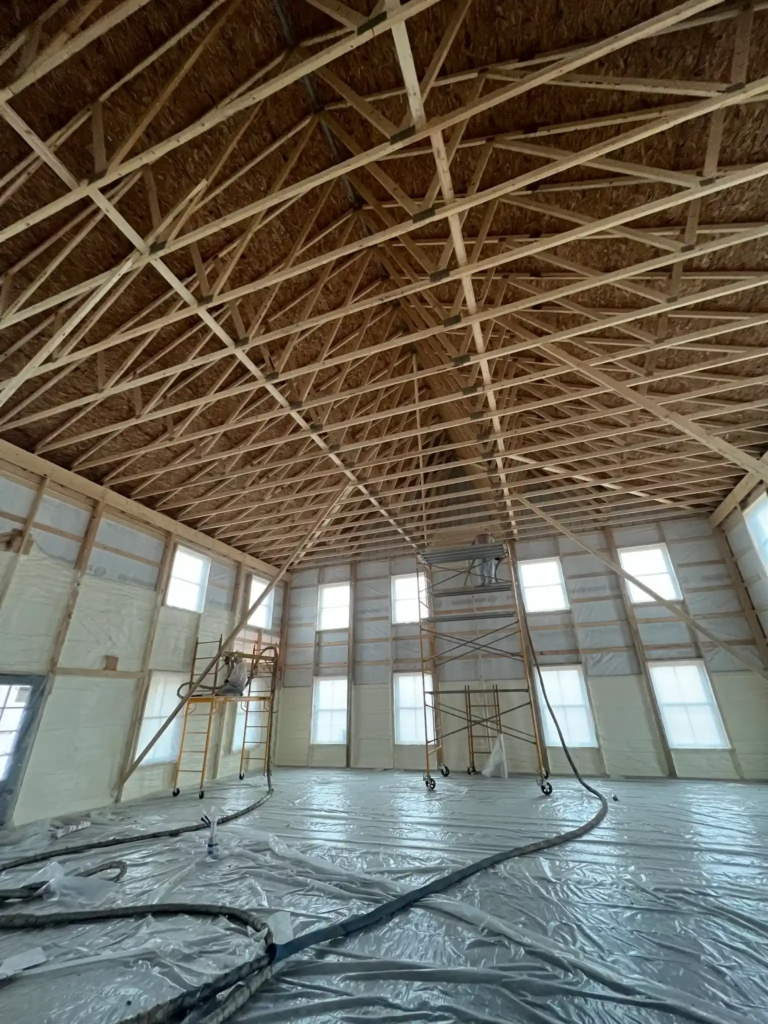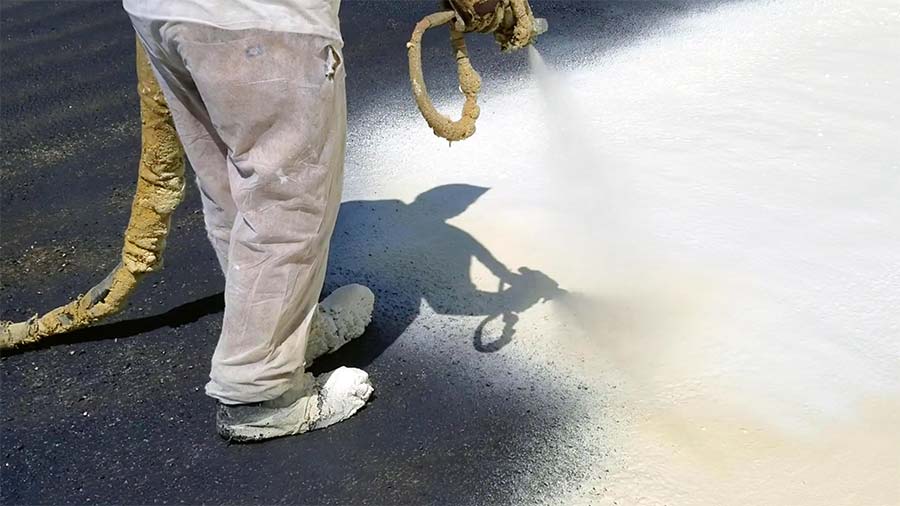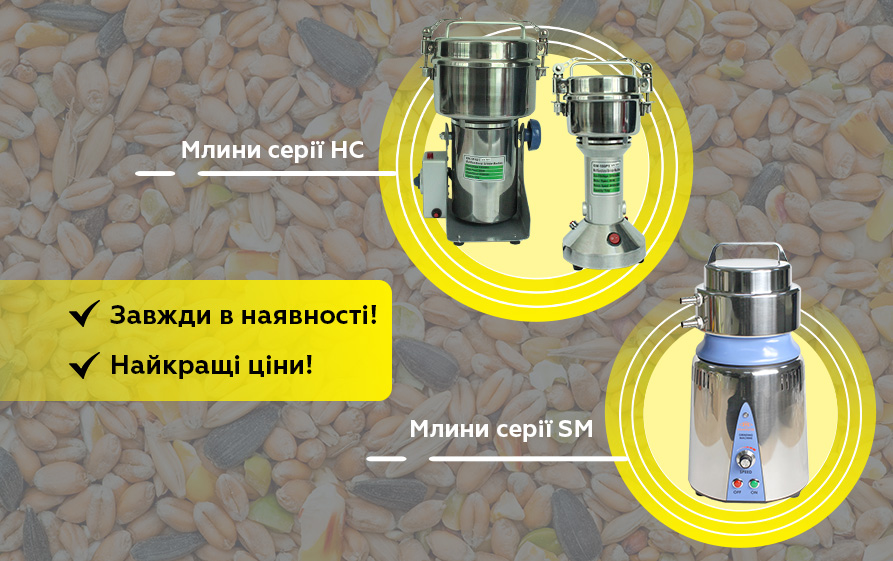Your Local Source for Professional Spray Foam Insulation in Marietta, OH
Effective insulation starts with choosing the right materials and application process, especially in a climate like Marietta, Ohio. Spray foam offers a high-performance solution, with closed-cell and open-cell options tailored to specific building needs. For consistent indoor temperatures, moisture control, and energy efficiency, Professional Spray Foam Insulation in Marietta, OH is the top-tier method that outperforms conventional alternatives.
This guide breaks down the essentials of spray foam insulation, technical data, regional suitability, and factors to consider before choosing a system. The insights come from firsthand field experience in various residential, commercial, and agricultural environments across southeastern Ohio.
Performance Insights for Southeast Ohio Conditions
Spray foam insulation adapts well to Ohio Valley’s mixed-humid climate, marked by cold winters and humid summers. Its ability to resist air and moisture infiltration makes it a long-term solution for minimizing HVAC load fluctuations across seasons.
Regional Considerations
- Humidity control: Closed-cell foam acts as a moisture barrier—critical in basements and crawl spaces common in older Ohio homes.
- Thermal integrity: Spray foam eliminates gaps, outclassing batt or blown-in fiberglass in draft-prone structures.
Comparison Table of Insulation Types
| Feature | Spray Foam (Closed-Cell) | Spray Foam (Open-Cell) | Blown-In Fiberglass |
| R-Value per inch | 6.0 – 7.0 | 3.5 – 3.8 | 2.2 – 2.7 |
| Air Sealing Ability | Excellent | Good | Poor |
| Moisture Resistance | High | Moderate | Low |
| Soundproofing | Moderate | Excellent | Fair |
| Cost Efficiency | Higher upfront, long-term savings | Lower cost, less barrier strength | Low upfront, lower durability |
| Best Use | Basements, commercial, pole barns | Attics, walls | Attics (budget) |
Technical Specifications
| Specification | Closed-Cell Spray Foam | Open-Cell Spray Foam |
| Density | 1.7 – 2.2 lb/ft³ | 0.4 – 0.6 lb/ft³ |
| Perm Rating (Moisture) | ≤1 (acts as vapor barrier) | >10 (vapor permeable) |
| Expansion Rate | 30x | 100x |
| Structural Reinforcement | Yes | No |
| Application Thickness | 1–2 inches per pass | 3 inches per pass |
Bonus Tip: Use closed-cell foam in pole barns and commercial structures for durability and added structural strength in severe weather zones.

Things to Consider Before Making a Decision
- Building Type: Residential applications often favor open-cell for soundproofing; agricultural buildings benefit from closed-cell’s structural rigidity.
- Budget Constraints: Spray foam requires higher initial investment but pays off in long-term energy savings.
- Moisture Exposure: Areas prone to water ingress need closed-cell foam for added protection.
- Code Compliance: Check local code requirements—especially for vapor barriers and fire-rated assemblies.
- Existing Insulation: Retrofits might require removing old fiberglass to allow proper spray adhesion.
- Fire Safety Ratings: Always verify the fire retardant level of the product used, especially in enclosed spaces.
- Ventilation and HVAC Adjustments: After sealing a building with spray foam, mechanical ventilation may need to be added for indoor air quality.
- Pest Resistance: Closed-cell foam offers minimal food value for pests, deterring rodents and insects more effectively than fiberglass.
- Installer Qualifications: Choose a trained technician with experience in varying environmental conditions for safe and effective application.
- Project Timeline: Cure time, ventilation, and cleanup can extend timelines—plan accordingly with your contractor.
Bonus Tip: Always perform a blower door test post-installation to verify air sealing and detect any weak points.
Service Options by Ohio Valley Spray Foam
Spray foam insulation contractors in Marietta offerings are tailored to the needs of homes, farms, and businesses in the Marietta region. Services include:
- Residential Spray Foam
Designed for attics, walls, and crawl spaces to maintain consistent indoor comfort year-round. - Commercial Spray Foam
Ideal for offices, retail, and warehouses needing large-scale thermal performance with code compliance. - Closed-Cell Spray Foam
High-density foam with vapor barrier qualities—used in basements, pole barns, and roofing systems. - Open-Cell Spray Foam
Expands quickly to fill voids—perfect for interior walls and ceilings where sound dampening is desired. - Pole Barn Spray Foam
Adds structural rigidity and moisture control, increasing the longevity of agricultural buildings. - Agricultural Spray Foam
Protects equipment and livestock by stabilizing interior temperatures in barns and storage sheds. - Blown-in Fiberglass Insulation
A cost-effective solution for attic retrofits or supplemental insulation layers.
Common Questions About Professional Spray Foam Insulation
What’s the best type of spray foam for Ohio winters?
Closed-cell spray foam performs best due to its higher R-value and moisture-blocking properties.
Is spray foam suitable for older homes?
Yes, but it’s critical to assess framing cavities and ensure old insulation is properly removed before application.
Can spray foam be added to existing walls?
Only if access is made—usually during renovation or through small drilled holes; open-cell is often used for retrofits.
What makes spray foam better than fiberglass?
Spray foam expands to seal air leaks and doesn’t settle over time, unlike fiberglass which can degrade in humid conditions.
Does insulation need to be reapplied over time?
No. When properly installed, spray foam lasts for the life of the building without settling or degrading.
Ready to Achieve Year-Round Energy Efficiency?
Upgrade your building’s thermal performance with insights backed by technical precision and local expertise. Apply these insights now: Schedule your insulation assessment with Ohio Valley Spray Foam.
Contact:
Ohio Valley Spray Foam
📞 (740) 629-9984
📧 sprayfoamllc@yahoo.com
FAQ
How long does spray foam insulation last?
It typically lasts over 50 years without degrading or requiring replacement, provided it was installed correctly.
Can spray foam insulation trap moisture?
Only if applied in improperly ventilated areas or combined with incorrect vapor barrier placement. Proper assessment prevents this issue.
Is spray foam safe for indoor air quality?
Once cured (usually within 24 hours), it’s inert and safe. Ventilation during application is essential to protect installers and occupants.
What prep work is required before application?
All surfaces must be dry, clean, and accessible. Electrical and plumbing should be roughed in beforehand to avoid drilling into foam later.
Does spray foam increase property value?
Yes. Its energy efficiency and low-maintenance appeal can enhance both appraisal and buyer interest.

Reviewer:
With 11 years in the spray foam field, Aiden Baker reviewed this content and provided advice on building steady growth through practical, honest communication.













